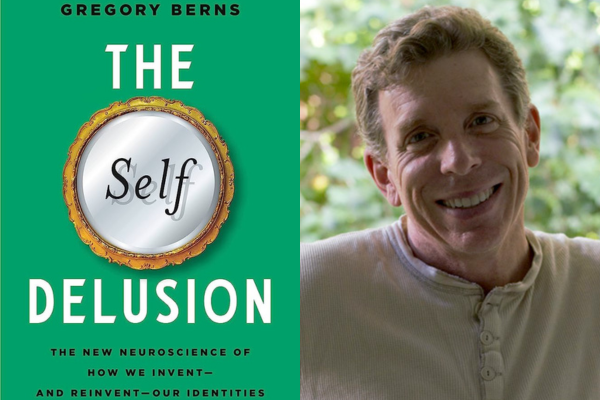It’s still summer break, so this isn’t required reading — but we’re betting you’ll want to check out a few of the books published by Emory University faculty in the past year. Whether you’re looking for a compelling novel as a break from textbooks or you’re looking to dig into a new topic, this list has something for everyone.
The books below are only a small portion of titles authored by the incredible people of Emory. Read more about the full list of faculty titles recognized at the 2022 Feast of Words program here.
“Alive and Destroyed: A Meditation on the Holocaust in Time”
By Jason L. Francisco, associate professor of film and media
Combining a variety of mediums, from documents to visual poems, “Alive and Destroyed: A Meditation on the Holocaust in Time” explores the lasting impact of the Holocaust through an experimental lens. The project began more than a decade ago, and Jason L. Francisco blends images captured from a variety of locations in Europe to mark individual places — some household names, some footnotes in history books — where events collectively associated with the Holocaust took place.
“Alive and Destroyed” is a haunting exploration of what once was and what continues to be, redefining the Holocaust not as something to be separated from the present, but as something to be reckoned with in the current conscience.
Listen to Francisco discuss photographing these sites with Matthew Brittingham, a PhD candidate at Emory.

“Ancient Wisdom: An Introduction to Sayings Collections”
By Walter T. Wilson, Charles Howard Candler Professor of New Testament
Wisdom literature from the ancient world isn’t just for classical scholars with “Ancient Wisdom: An Introduction to Sayings Collections.” Through analyzing 27 important works, Walter T. Wilson contextualizes the words within the cultural and historical importance of the societies in which they were written, making this title a perfect companion for readers from students to experts.
Collections from across the world, including ancient Egypt, early Christianity and Greco-Roman times, are included and supported by other academic research and updated translations of each piece.
“Ancient Wisdom” was one of three works published by Wilson in 2022.
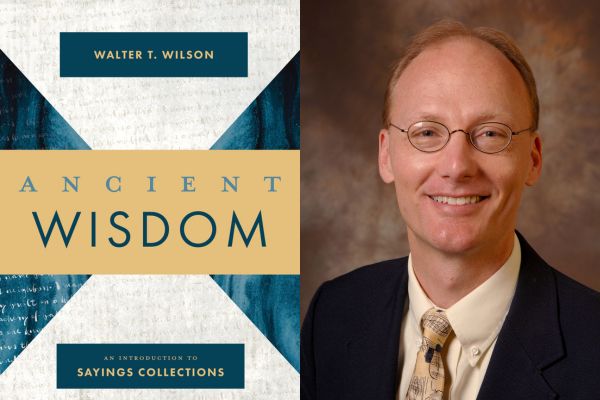
“Crimesploitation: Crime, Punishment, and Pleasure on Reality Television”
By Daniel W. LaChance, Winship Distinguished Research Professor in History at Emory University, and Paul Kaplan, associate professor of criminal justice at San Diego State University
In “Crimesploitation: Crime, Punishment, and Pleasure on Reality Television,” Daniel LaChance and Paul Kaplan investigate the popularity of “crimesploitation” shows that riddle television programming, saying that the very shows designed to captivate and entertain audiences are actually harmful and exploitative.
Household names like “Cops,” “Dog: The Bounty Hunter” and “Making a Murderer” place viewers in a unique position of identifying with both the criminals and the law enforcement workers.
LaChance and Kaplan offer a new perspective on the societal effects of reality television, when major conversations about law enforcement, punishment and deterrence in America are at an all-time high.
LaChance was recently named the 2022-23 Chronos Faculty Fellow at Emory College of Arts and Sciences.
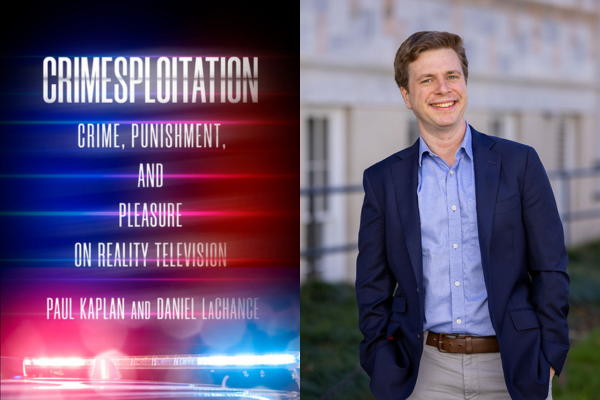
“Dispatches from the AIDS Pandemic: A Public Health Story”
By Kevin M. De Cook, Harold W. Jaffe and James W. Curran, Dean Emeritus and professor of epidemiology and global health at the Rollins School of Public Health
As the AIDS pandemic was spreading across the nation, James Curran was at the forefront of the battle to understand the disease and prevent it from hurting more individuals.
“Dispatches from the AIDS Pandemic” provides a real-time account of the Centers for Disease Control and Prevention’s (CDC) response to the disease from the perspective of three public health leaders, tracing back to the earliest-known cases in New York and California through to the current scientific knowledge and treatments.
Last year, Dr. Curran was honored at the 2022 Bill Foege Global Health Awards for his significant contributions to public health.
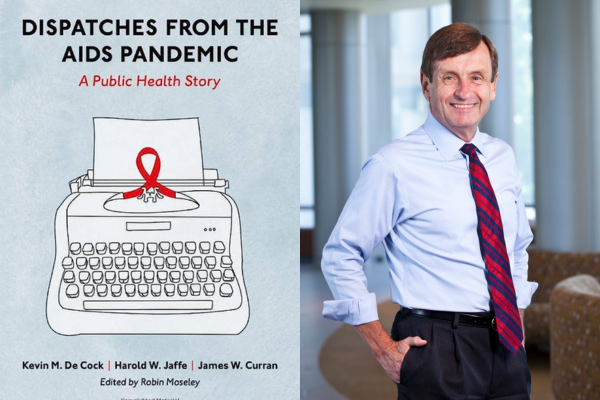
“Does My Body Offend You?”
By Marie Marquardt, scholar-in-residence at Emory’s Candler School of Theology, and Mayra Cuevas, Dortort Visiting Professor of Creative Writing at City University of New York
A story that explores feminism and companionship, “Does My Body Offend You?” encourages readers to stand up for what they believe in and be an ally to others.
When Malena Rosario moves to Florida after her Puerto Rico home is destroyed by Hurricane María, she faces the oppressive and misogynistic dress code at her high school. Ruby McAllister, a fierce feminist who relocated to Florida from Seattle, stands up for Malena and refuses to back down against the school administration.
In the midst of leading the revolution, Ruby and Malena are forced to confront their own perspectives to stand up for what they believe in. Told from alternating perspectives written by Marquardt and Cuevas, the novel explores youth activism and the importance of standing strong in your beliefs.
The novel is Marquardt’s fourth work of fiction, in addition to her several academic chapters and articles.

“Dwell Here and Prosper”
By Chris Eagle, associate teaching professor of human health
Relying on notes his late father kept while living in dysfunctional assisted living facilities in the 1990s, Chris Eagle creates a character-rich novel, “Dwell Here and Prosper,” that captures the sense of living in limbo.
After a stroke, Dick is placed in an assisted living facility. The rowdy, Philly-at-heart man is determined to become healthy enough to leave the facility, and walks laps daily to reach his goal. Eventually, when he realizes he’ll never recover enough to leave, he spends his time noting the arguments, habits and wild times of the other residents, finding purpose in chronicling the daily occurrences of his facility.
Utilizing his expertise in medical ethics and health, Eagle includes details about how the health care system copes with an aging population while also describing the communities that form in these institutions.
The book is the debut novel for Eagle, who helped found the field of dysfluency studies with his monograph, “Dysfluencies,” in 2013.
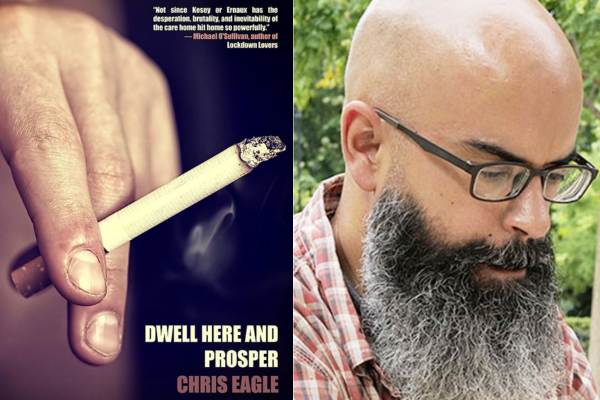
“Family Impromptu: Collected Stories”
By Rosemary Magee, retired director of the Stuart A. Rose Manuscript, Archives and Rare Book Library
Families can be tough, complicated and emotional. “Family Impromptu: Collected Stories” beautifully illustrates this through a striking collection of short stories.
Exploring the avenues people pursue to cultivate relationships in families, Rosemary Magee places the reader in a variety of situations: a push-and-pull marriage, stalking and kidnapping in dreams, and an execution out west. With sharp insight and humor, this collection takes an honest look at the complication of family ties.
The short stories were published following Magee's 40 years with Emory, including time as a student, alumna and scholar; professor and researcher; senior associate dean in Emory College; member of the president's cabinet and vice president and secretary of the university; and library special collections director.
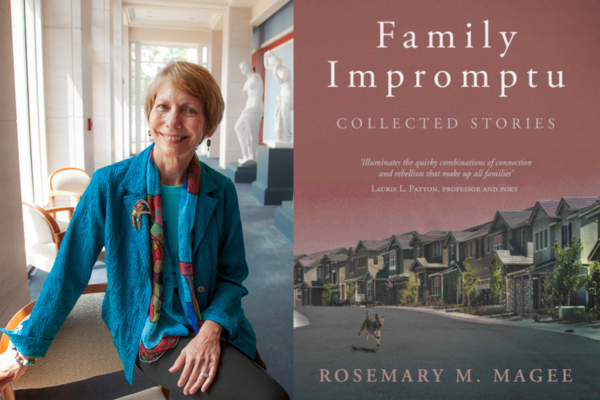
“Gold Diggers”
By Sanjena Sathian, 2022-24 creative writing fellow in fiction
“Gold Diggers” is a satirical novel that tells the story of a Georgia teen, the son of Indian immigrants, who chases down a magical elixir in the name of the American dream.
Neil Narayan, a second-generation Asian American growing up in Bush-era Atlanta suburbs, feels crushed under the weight of his family’s high standards and expectations. His attention, however, is mainly focused on his neighbor Anita Dayal. After learning that Anita will soon inherit a magic elixir of stolen gold that contains the power and ambition of the gold’s owner, he jumps at the opportunity to reach both Anita and his family’s expectations. The potion, however, bites back, resulting in a cascade of events that harm the neighborhood. Years later, Neil starts thinking he may need another chance at the power of the potion.
The Washington Post named Sathian’s debut novel as a Top Best Book of 2021, and she recently won the Townsend Prize for Fiction for the work. Sathian is now working with a production company for a television adaptation of the story.
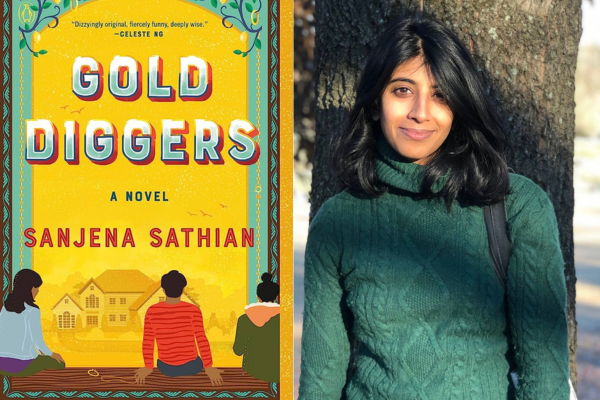
“Integrating a Social Determinants of Health Framework into Nursing Education”
By Nell Hodgson Woodruff School of Nursing faculty Jill Hamilton, professor and senior faculty fellow of social determinants of health and health disparities (and affiliate professor at Candler School of Theology); Dean Linda McCauley; and Beth Ann Swan, professor, associate dean and vice president for academic practice partnerships and interim assistant dean for pre-licensure programs
Born out of the framework created by Jill Hamilton for the Nell Hodgson Woodruff School of Nursing, “Integrating a Social Determinants of Health Framework into Nursing Education” describes the ways in which social, cultural, environmental and public policy considerations impact the health of individuals.
Hamilton created the framework after being tapped by Dean McCauley to begin implementing an understanding of social determinants of health into the classroom for nursing school students. Utilizing this perspective in the classroom, Hamilton said, was crucial to better treat diverse communities.
The trio began working on the book, which was published in February, the next semester. 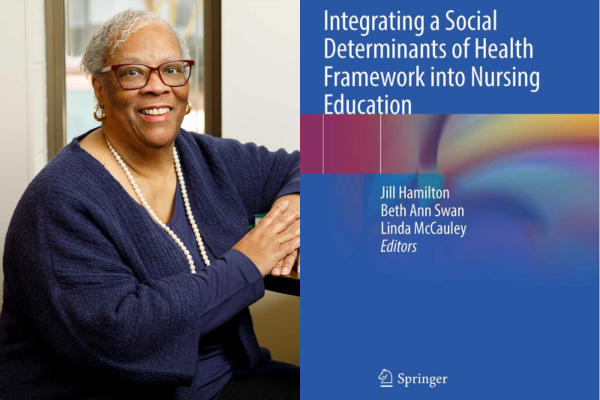
“Let the Church Sing On! Reflections on Black Sacred Music”
Edited by James Abbington, Candler School of Theology associate professor of church music and worship
As part of publisher GIA’s African American Church Music Series, this latest edition of “Let the Church Sing On!” adds to the existing volumes of James Abbington’s reflections on choral arrangements, hymnals, organ music and more.
Abbington, a leading scholar in African American church music, has been tapped by many publishing houses and editors to write essays and chapters. Now, readers can easily access his work in one place through “Let the Church Sing On! Reflections on Black Sacred Music.”
Abbington was recently recognized within the Candler School of Theology as part of the school’s Candler Black Excellence initiative.
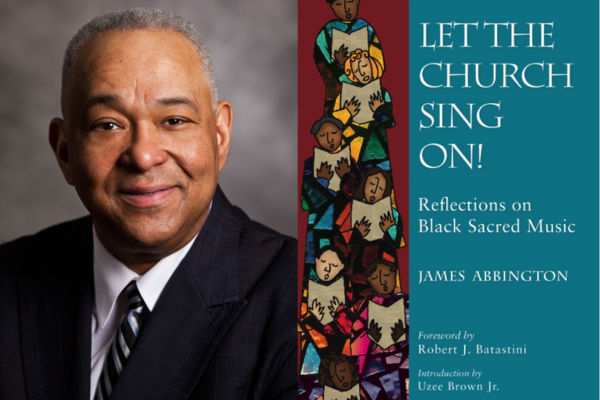
“Marylin: A Novel of Passing”
Co-translated by Peter Höyng, professor of German studies, with Chauncey J. Mellor
First published by Austrian author Arthur Rundt in 1928, this is the first English translation of “Marylin,” the story of a mixed-race woman passing as white in the U.S. and Caribbean. The woman moves from Chicago to New York, and her story ends dismally in the Caribbean. Bringing a European view of prevailing racial attitudes during the Jim Crow era and Harlem Renaissance movement, the novel is just as relevant today as it was upon its original publication.
It is the second time that Höyng has translated a German-language novel on race and identity into English. His four previous books include his 2017 translation of “The Blue Stain,” which was originally published in 1922.
Such stories, Höyng says, highlight racism not just from a historical perspective but also in contemporary society.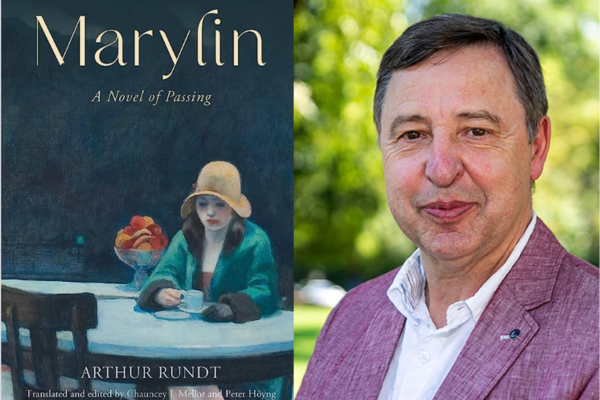
“Mother Medusa”
By Lucas Carpenter, former Charles Howard Candler Professor of English
Traversing the real and imaginative world — and the space between the two — Lucas Carpenter’s 55 refrains of poetry transport the reader to a variety of locations, including the pyramids of Giza and the poet’s backyard. Through the journey, readers explore the magic of meaning and the possibility of transformative self-knowledge.
“Mother Medusa” is the most recent of Carpenter’s literary endeavors. It follows the publication of three poetry collections, a body of short stories and dozens of periodical reviews.
After spending more than three decades at Oxford College, Carpenter retired in 2015.
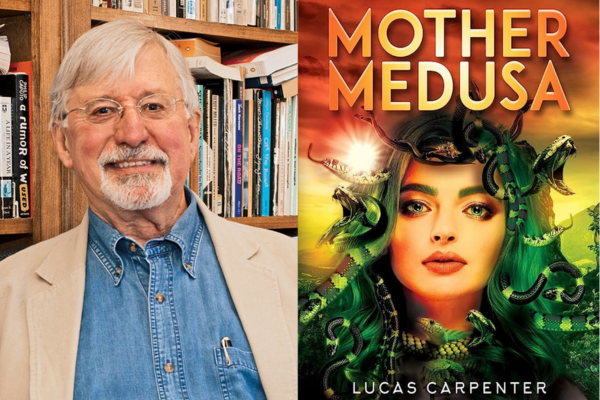
“Monster in the Middle”
By Tiphanie Yanique, professor of English and creative writing
In writing the love story of Fly, a Black musician, and Caribbean science teacher Stela, Tiphanie Yanique examines how we all carry our ancestors’ experiences and our own into relationships.
In modern-day New York, Fly, a Black American musician with varied religious experiences, is very accustomed to heartbreak. Stela, on the other hand, is a Caribbean science teacher who was raised Catholic and is searching for long-lasting love. Exploring their compatibility, they learn that their histories are intertwined — all the way back to their parents’ earliest loves.
Yanique will spend the 2023-24 academic year at H. Lavity Stoutt Community College in the British Virgin Islands, teaching and conducting research as a Fulbright U.S. Scholar. “Monster in the Middle” was a finalist for the 2023 Townsend Prize for Fiction.
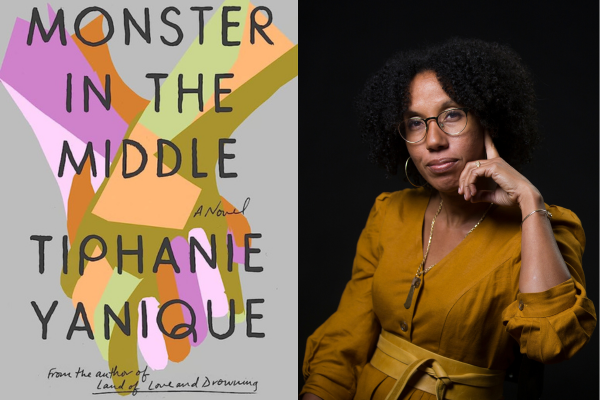
“Obeah, Orisa and Religious Identity in Trinidad, Vol. II, Orisa”
By Dianne Stewart, Samuel Candler Dobbs Professor of Religion and African American Studies
In this book — part of a joint project that offers a historical comparative account of African religions in Trinidad — Dianne Stewart focuses on the West African heritage and religious imagination of Yoruba-Orisa devotees on the island in the wake of slavery and colonialism.
“Obeah, Orisa and Religious Identity in Trinidad, Vol. II, Orisa” covers the pivotal periods of 19th-century liberated African resettlement, the 20th-century Black Power movement and subsequent campaigns for the civil right to religious freedom in Trinidad.
A scholar of African-heritage religious cultures in the Caribbean and the Americas, Stewart was named the 2021 Emory College Chronos Faculty Fellow. As a bonus, Stewart worked to make her book open access through Emory's Digital Pubishing in the Humanities program — in other words, you can download and read this title for free.
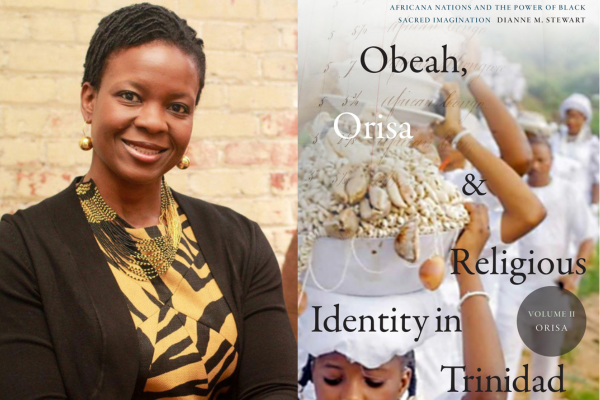
“Options Are Power: Career Strategies for High Performers Who Want a Life”
By Donna Peters, adjunct lecturer for the Executive MBA program at Goizueta Business School and award-winning career coach
It’s no secret that advancing your career can be tough. Feeling stuck, wanting something more rewarding and exploring different paths can lead to a flurry of questions about where to move next.
“Options Are Power” provides highly-motivated individuals with strategies to navigate their careers through intentional choices and multiple paths. The result? A better-defined set of values and priorities that help you make the right decisions to meet future goals.
Donna Peters recently discussed the “Me-Suite” mindset on the Goizueta Effect podcast, building on her courses focused on healthy career-growing strategies.
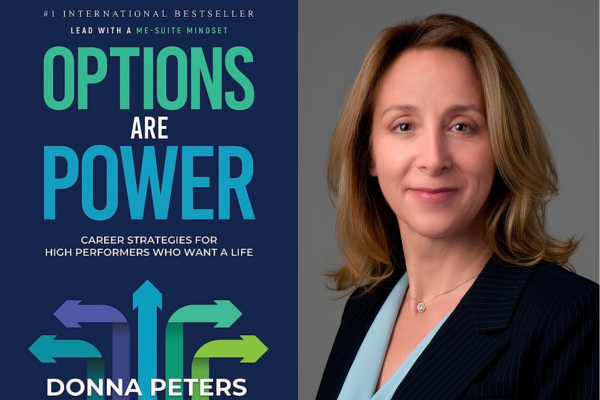
“Plagues in the Nation: How Epidemics Shaped America"
By Polly Price, Asa Griggs Candler Professor of Law and professor of global health
Government and public health go hand-in-hand. “Plagues in the Nation: How Epidemics Shaped America” investigates the success and failures of this intersection, recounting the history and implications of how federal, state and local governments — along with legal responses — have impacted U.S. citizens affected by epidemics in the United States.
Concluding with the COVID-19 pandemic, Polly Price ponders the implications of historical epidemics and what needs to be addressed before the next one to ensure an effective response and the health of citizens.
The book was featured in Emory Magazine, where Price reflected on how the book was informed by her experiences as an Andrew Carnegie Fellow, an Emory professor and a member of the Robert Wood Johnson Foundation’s Scholar-in-Residence Program.
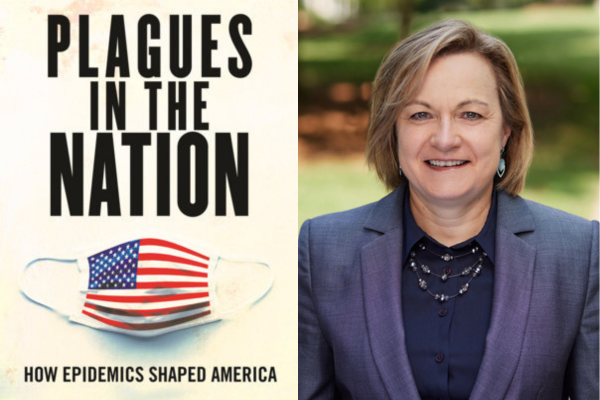
“The Plant Hunter: A Scientist's Quest for Nature's Next Medicines”
By Cassandra Quave, associate professor of dermatology and human health; curator of the Emory University Herbarium
It’s easy to lose sight of modern medicine’s bridge to the natural world. The sterile medical environment is a far cry from the lush greenery of nature. Except, Cassandra Quave asserts, that it isn’t. As a leading medical ethnobotanist, Quave identifies and studies plants that may be able to treat antimicrobial resistance and other illnesses.
Quave has conducted field research everywhere from the flooded forests of the remote Amazon to isolated mountaintops in Albania, searching for natural compounds used by traditional healers that could help save us all from untreatable superbugs.
“The Plant Hunter,” part memoir, part scientific exploration, traces Quave’s journey as a dedicated medical ethnobotanist and the research she has embarked on during her stellar career.
She recently spoke to “Emory Magazine” about the book, explaining how it allowed her to tell a contextualized story of her life and research.
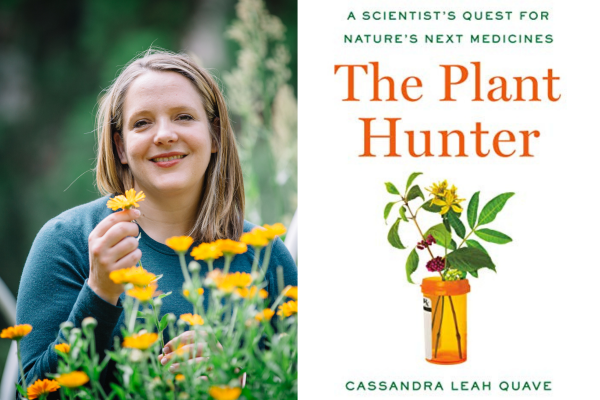
“Redefining Geek: Bias and the Five Hidden Habits of Tech Savvy Teens”
By Cassidy Puckett, assistant professor of sociology
Any teen can be a geek — it's not reserved for some young people with certain interests. In “Redefining Geek,” Cassidy Puckett analyzes the habits of technologically adept teens, positing that being comfortable with technology is a skill that can be learned and acquired.
Pointing to the lack of representation of women and marginalized groups in technology, Puckett says that while these skills can be built, they are not equitably recognized.
The research has real-world implications: school districts in Georgia are investigating how the findings of Puckett’s research can be utilized, which itself was informed by her time spent in public schools.
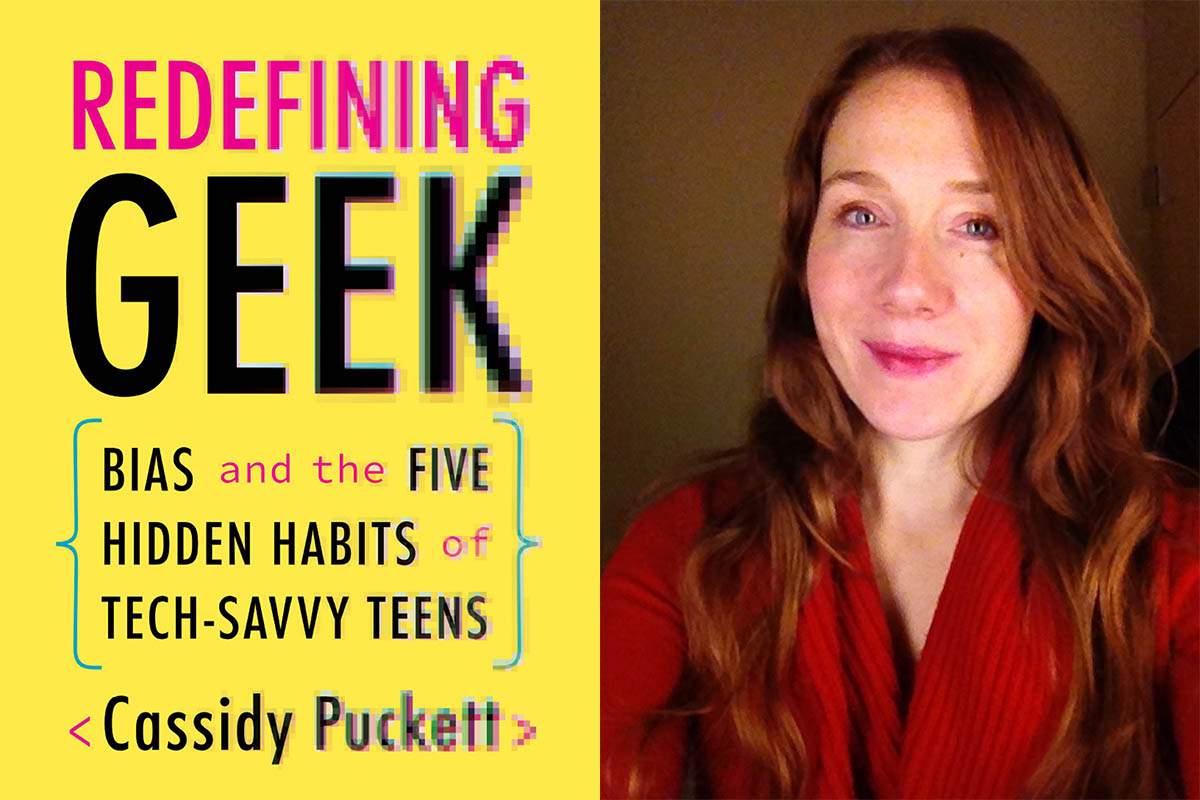
“Renegade Rhymes: Rap Music, Narrative, and Knowledge in Taiwan”
By Meredith Schweig, assistant professor of music
Emory ethnomusicologist Schweig conducted extensive fieldwork at concert venues, protest scenes, music video sets and more for this book that shows how rap became a powerful tool for exploring national and ethnic identity in post-authoritarian Taiwan.
In that post-authoritarian era of the 1980s, the culture of Taiwan grew and shifted. In “Renegade Rhymes,” Schweig’s research shows how rap artists used their compositions as an avenue for storytelling, mirroring the social and political realities of a new multicultural society emerging during this tipping point in the country’s history.
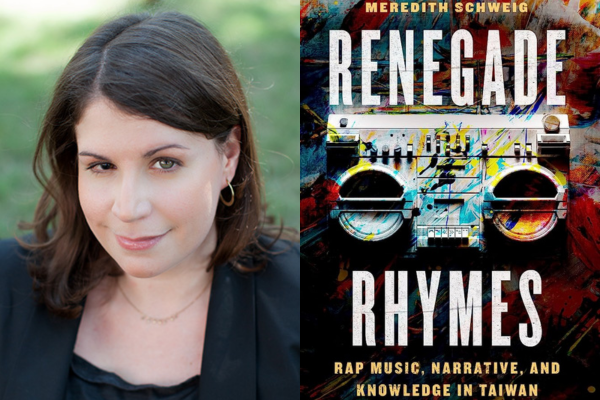
“The Self Delusion: The New Neuroscience of How We Invent – and Reinvent – Our Identities”
By Gregory Berns, professor of psychology
We all tell ourselves stories about who we are. Gregory Berns, an Emory neuroscientist, draws upon his and others’ research in psychology and social sciences to argue that we are, in fact, the stories.
Our brains fill in the gaps of memory, building effective stories that bring order to the world and our place in it. The same mechanisms explain how people fall prey to conspiracy theories and may also show how we can reinvent our stories and ourselves. In other words, we create “The Self Delusion.”
Berns’ work, for which he was awarded Georgia Author of the Year, pulls together the latest research on how the brain constructs memory and narrative — and how all of that fills in the spaces to construct an identity that makes sense to us.
